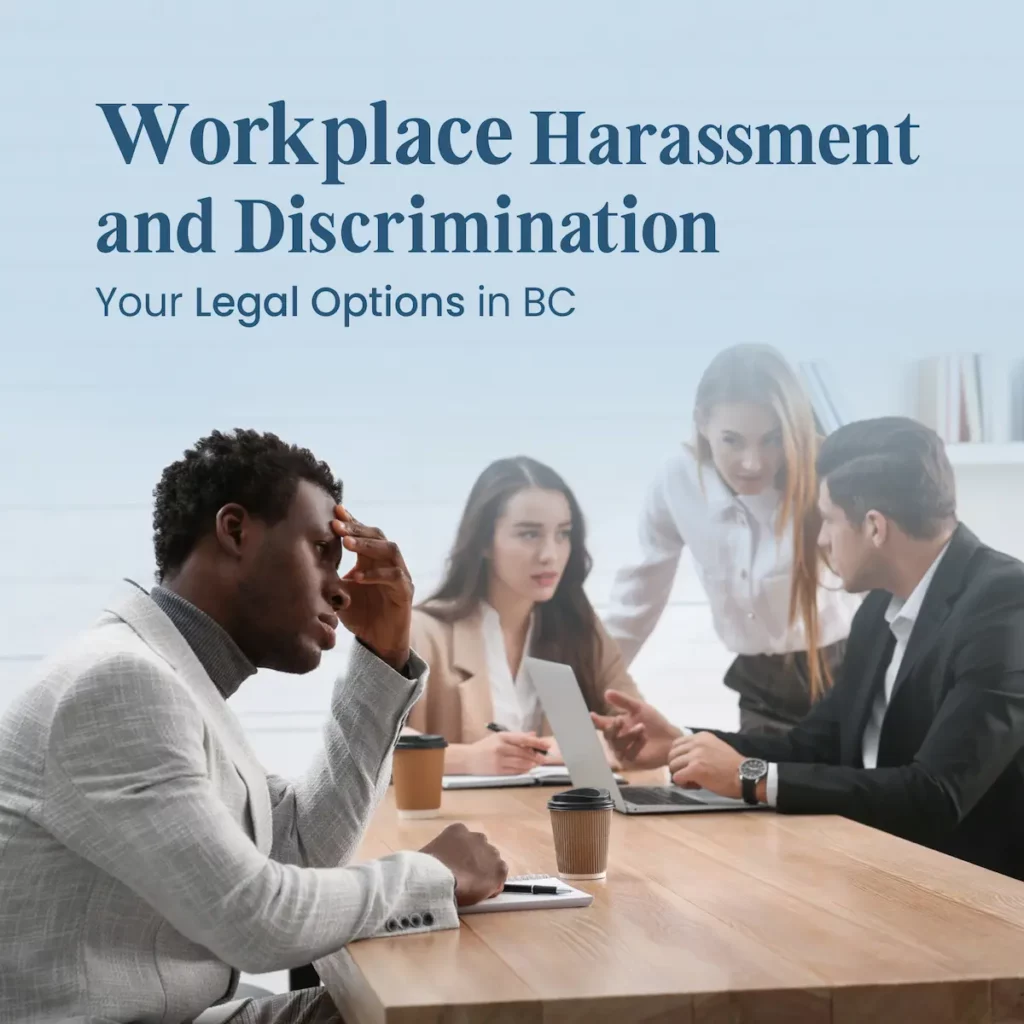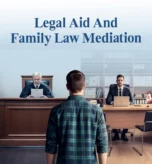Are you experiencing workplace harassment or discrimination in British Columbia and unsure of your legal rights?
Workplace harassment and discrimination can deeply affect your mental health, career growth, and overall quality of life. Whether it’s subtle bias, hostile behaviour, or direct violations of your rights, no one should have to endure a toxic work environment. Fortunately, in British Columbia, there are clear legal protections for employees facing workplace harassment or discrimination.
Understanding these protections and your legal options is critical. In this blog, we’ll break down what qualifies as workplace harassment and discrimination in BC, explain the laws that shield you from such treatment, and guide you through your path to justice—with help from experienced legal professionals like Sorensen Truong LLP, a leading employment law firm in BC dedicated to supporting individuals in hostile or unfair workplaces.
What Is Workplace Harassment?
Workplace harassment refers to any unwelcome conduct or comment that is known or should reasonably be known to be offensive, humiliating, or intimidating. Harassment may be:
- Verbal: insults, name-calling, slurs
- Physical: threats, unwanted physical contact
- Visual: offensive posters, images, or gestures
- Psychological: intimidation, isolation, gaslighting
Workplace harassment can come from employers, coworkers, supervisors, clients, or even third-party vendors. It becomes a legal issue when it creates a hostile or poisoned work environment or violates an individual’s human rights.
What Is Workplace Discrimination?
Discrimination in the workplace occurs when an employee is mistreated based on characteristics protected by the BC Human Rights Code, including:
- Race
- Gender or gender identity
- Age
- Sexual orientation
- Disability
- Religion
- Marital or family status
- Political belief
- Place of origin
- Criminal conviction unrelated to employment
Discriminatory actions can manifest during the hiring process, promotions, disciplinary actions, terminations, or daily interactions.
Legal Protections in BC Against Harassment and Discrimination
1. BC Human Rights Code
The BC Human Rights Code is the primary legislation protecting workers from discrimination and harassment. It applies to all workplaces in the province and prohibits discriminatory practices in employment, housing, and the provision of services.
Under the Code, employees have the right to:
- Equal treatment without discrimination
- A workplace free from harassment
- File a complaint with the BC Human Rights Tribunal.
2. WorkSafeBC
If workplace harassment leads to psychological injuries such as anxiety or depression, you may be entitled to compensation through WorkSafeBC. Claims are assessed based on medical evidence and the impact of the work-related events on mental health.
3. Employment Standards Act (ESA)
While the ESA doesn’t directly address harassment, it governs minimum employment standards, such as hours of work, overtime, and termination rights. If harassment leads to constructive dismissal (being forced to quit due to intolerable conditions), employees may have grounds to claim wrongful termination.
What to Do If You Are Harassed or Discriminated Against at Work
1. Document Everything
Keep a detailed record of every incident, including:
- Date, time, and location
- Names of people involved
- Specific comments or actions
- Witnesses (if any)
- Your response and emotions
This documentation is crucial if you decide to file a legal claim.
2. Report Internally First
Most companies have internal policies for handling complaints. Report the issue to:
- Human Resources
- Immediate Supervisor (if not involved)
- Workplace harassment officer (if appointed)
If the internal resolution fails or feels unsafe, seeking external legal assistance becomes necessary.
3. File a Human Rights Complaint
You can file a complaint directly with the BC Human Rights Tribunal. The complaint must be submitted within one year of the last incident. The process involves:
- Submitting a complaint form
- Participating in mediation (optional)
- Proceeding to a hearing if not resolved
Legal representation can make a significant difference in presenting evidence, cross-examining witnesses, and negotiating settlements.
4. Consult a Workplace Harassment and Discrimination Lawyer in BC
For those who feel overwhelmed by the legal process, consulting a legal professional is one of the most effective steps. A qualified employment lawyer will:
- Assess whether your case qualifies under human rights or employment laws
- Advise on timelines and legal options
- Assist with filing tribunal or court claims
- Represent you during hearings or negotiations
If you’re in BC, Sorensen Truong LLP offers trusted legal advice in workplace harassment, discrimination, and employment law matters. Their client-focused approach ensures you feel heard, supported, and represented at every step.
Constructive Dismissal: When Harassment Forces You to Quit
If the workplace becomes intolerable due to persistent harassment or discrimination, quitting your job may be seen as constructive dismissal. This occurs when an employer has made fundamental changes to your employment or failed to provide a safe work environment.
In such cases, you may be entitled to:
- Severance pay
- Damages for pain and suffering
- Compensation for loss of employment
Again, legal guidance is crucial to proving constructive dismissal and securing fair compensation.
How Sorensen Truong LLP Can Help
Sorensen Truong LLP is a trusted legal services provider in British Columbia with extensive experience in employment law, human rights claims, and workplace investigations. Their legal team is skilled in negotiating favourable outcomes and pursuing justice through the BC Human Rights Tribunal or civil courts when necessary.
Their services include:
- Reviewing workplace policies and contracts
- Filing human rights complaints
- Representing employees in wrongful dismissal or harassment cases
- Offering mediation and alternative dispute resolution options
If you’re unsure whether your workplace treatment is legally actionable, a confidential consultation with Sorensen Truong LLP can provide clarity and direction.
Conclusion
Experiencing workplace harassment or discrimination in British Columbia can be overwhelming, but it’s important to remember that you are not without recourse. Provincial laws—such as the BC Human Rights Code—are in place to protect employees from unfair treatment, harassment, and discrimination in the workplace. These laws empower workers to take action, seek accountability, and pursue remedies that reflect the seriousness of their experiences.
Whether you are dealing with ongoing harassment, a hostile work environment, or discrimination based on race, gender, disability, or another protected ground, it is critical to understand your rights and the legal options available to you.
Working with an experienced employment lawyer in BC, such as the dedicated team at Sorensen Truong LLP, can provide the clarity, legal strategy, and representation you need. From filing human rights complaints to navigating constructive dismissal claims, they offer comprehensive support to help you protect your dignity, livelihood, and mental well-being.





